Top 10 Strategic Technology Trends for 2023 by Gartner (Part2)
In our first blog on Top 10 Strategic Technology Trends for 2023 by Gartner, we had discussed the top 5 technology trends that will enable businesses to offer customized experiences to the end users for better engagement, ROI, conversion, and sales.
We enlisted how brands can leverage new technological innovations like Digital Immune System, Applied Observability, AI Trust, Risk and Security Management (AI TRiSM), Industry Cloud Platforms and Platform Engineering.
6. Wireless-Value Realization
By 2025, 50% of enterprise wireless endpoints will use networking services that deliver additional capabilities beyond communication, up from less than 15%.
Wireless value realization is the process of realizing the full potential of wireless technology to create value for both customers and businesses by providing a more cost-efficient, reliable and scalable technical foundation that reduces capital expenditure. It covers everything from traditional end-user computing, through support for edge devices, to digital tagging solutions.
All of which will need connectivity to operate and require a spectrum of wireless solutions to cater to all environments. Networks will go well beyond pure connectivity to become a source of direct business value. Wireless is moving from communications technology to becoming a broader digital innovation platform.
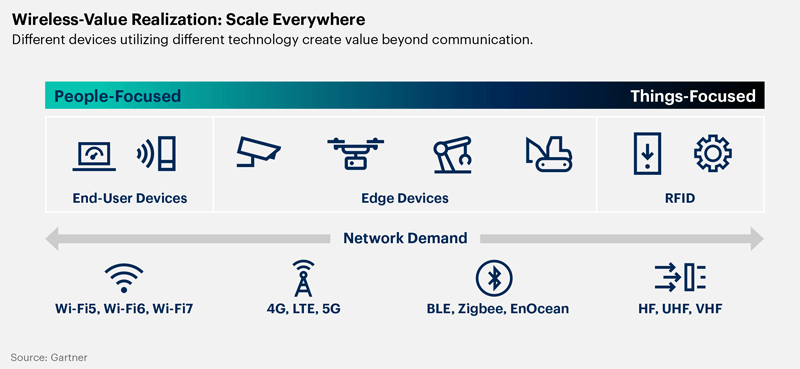
7. Superapps
By 2027, more than 50% of the global population will be daily active users of multiple superapps.
Superapp provides end users with a set of core features and gives them access to third-party created mini apps. It is built as a platform to offer customized app experiences to its users as they can choose and activate their own set of apps. A Superapp is more than a collection of apps at a single place, it is an ultimate manifestation of a composable application and architecture. It is a highly effective delivery model to design people centric products, incorporate engaging features, attract, and support development partners and establish ecosystem governance reinforced with shared platform capabilities.
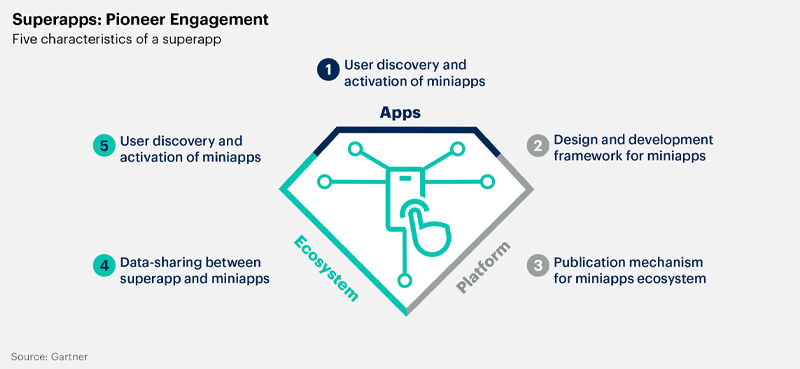
8. Adaptive AI
By 2026, enterprises that have adopted AI engineering practices to build and manage adaptive AI systems will outperform their peers in the operationalizing AI models by at least 25%
Businesses benefit from AI according to their capabilities to develop, deploy, adapt, and maintain AI across different functional areas. Therefore, it is crucial to build AI models that can self-adapt in production for faster time to market and reduction in complexities.
Adaptive AI systems allow for model behavior change post deployment by learning behavioral patterns from past human and machine experience and within runtime environments to adapt more quickly to changing real-world circumstances. AI engineering provides the foundational components of implementation, operationalization and change management at the process level that enable adaptive AI systems.
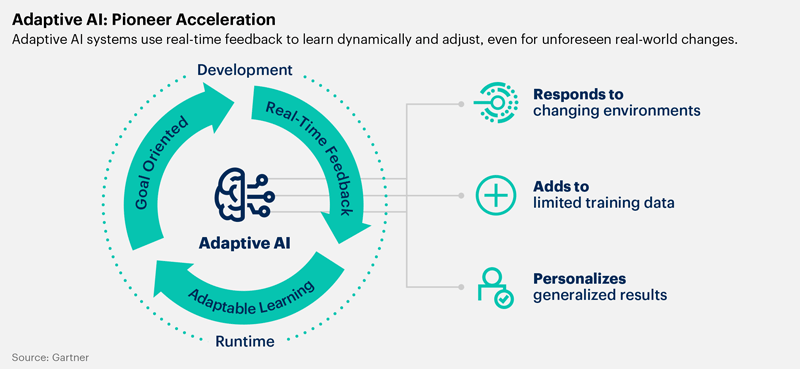
9. Metaverse
By 2027, over 40% of large organizations worldwide will be using a combination of Web3, spatial computing and digital twins in metaverse-based projects aimed at increasing revenue.
Metaverse is a powerful new platform that can help optimize your digital business. Using Metaverse, you can create a virtual world that is customized to your business and customer needs. This world can be used to store and manage your business data, and it can also be used to create and manage your customer relationships.
Metaverse is perfect for businesses that need to improve their efficiency and workflow. Organizations are developing ways to provide better engagement, collaboration, and connection to their employees through virtual workspaces and the use of internal metaverse experiences called intraverses.
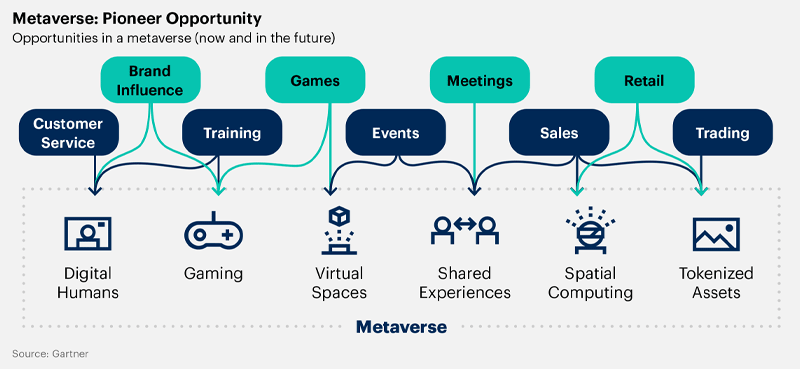
10. Sustainable Technology
By 2025, 50% of CIOs will have performance metrics tied to the sustainability of the IT organization.
The power of digital transformation is being demonstrated by the increase in energy and material efficiency of IT services. Future-proof business transformation requires that organizations focus on the following five imperatives: culture, people, infrastructure, process, and technology.
Investments in technologies such as analytics, cloud services, enterprise greenhouse gas emissions management software to facilitate collection and ESG performance trackers helps businesses to boost operational resiliency and financial performance, while providing new avenues of growth.
Technology is changing so fast that the pace of innovation almost feels impossible to keep up with. As a business owner, it is easy to feel anxious about what new developments your competitors will use next to become more successful, catch up with you, or even overtake you in the marketplace. However, technological innovation also creates opportunities for businesses and startups who can adopt these changes as a catalyst for growth.
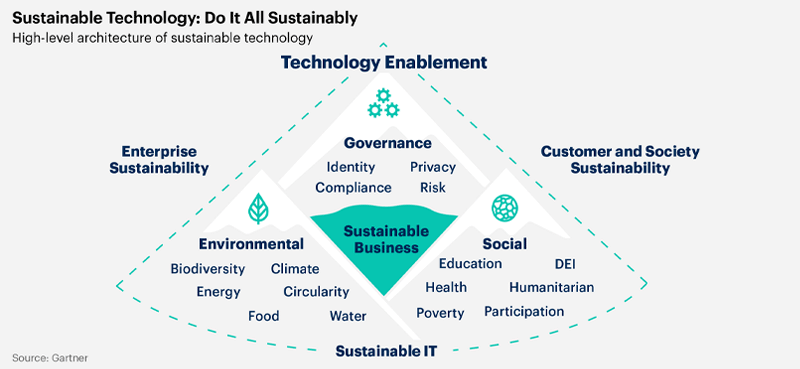
Espire is a Digital Transformation and Total Experience (TX) Solutions provider with a Cross-Enterprise approach to deliver future-ready services that are resilient to market disruptions. With focus on TX, we are paving way for enterprises to deploy & deliver the best Customer Experience (CX), Employee Experience (EX), and Business Experience (BX) – with overarching service offerings around Multi-Experience (MX), and User Experience (UX).